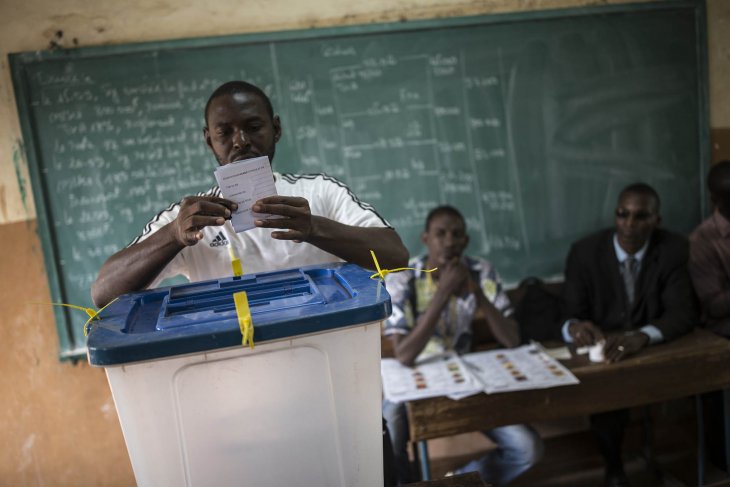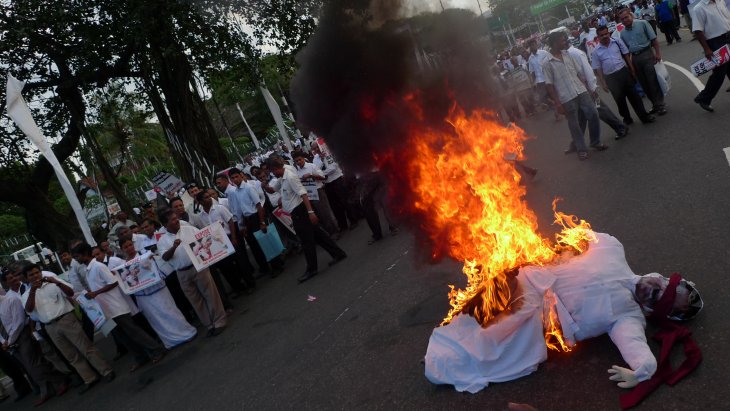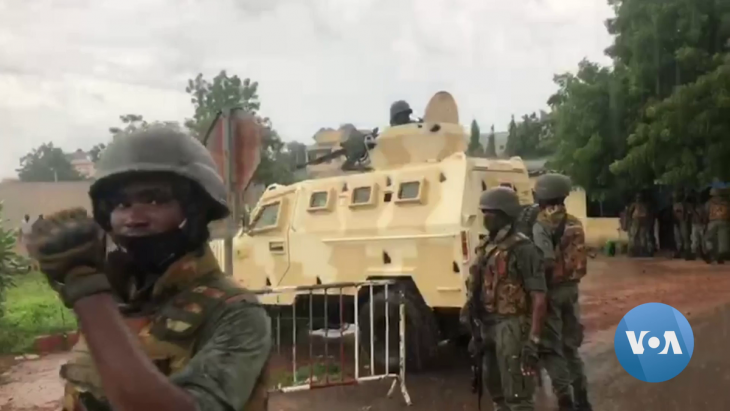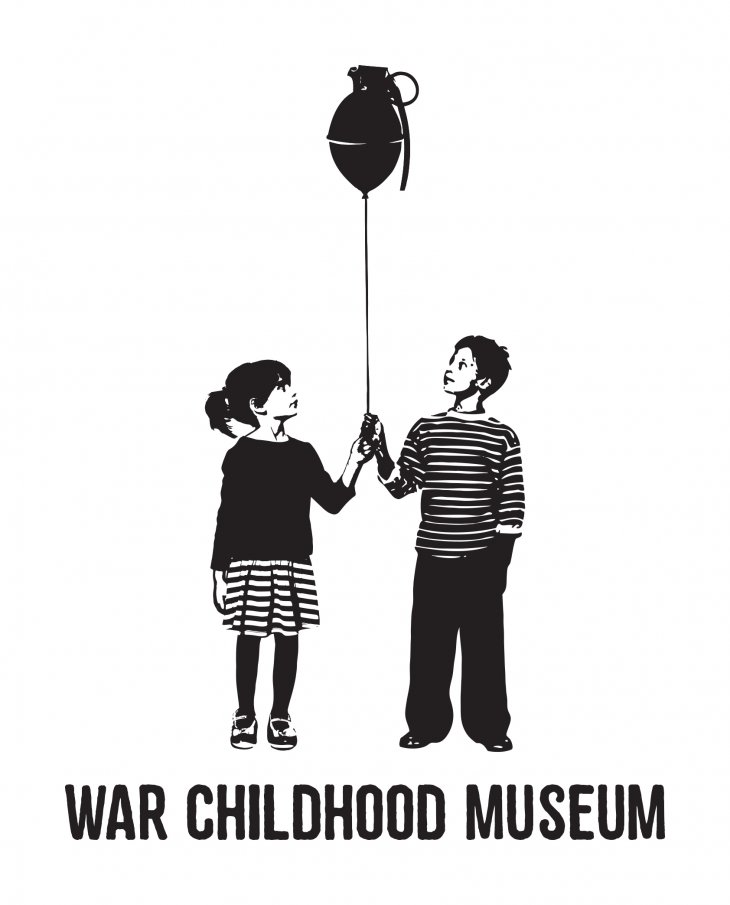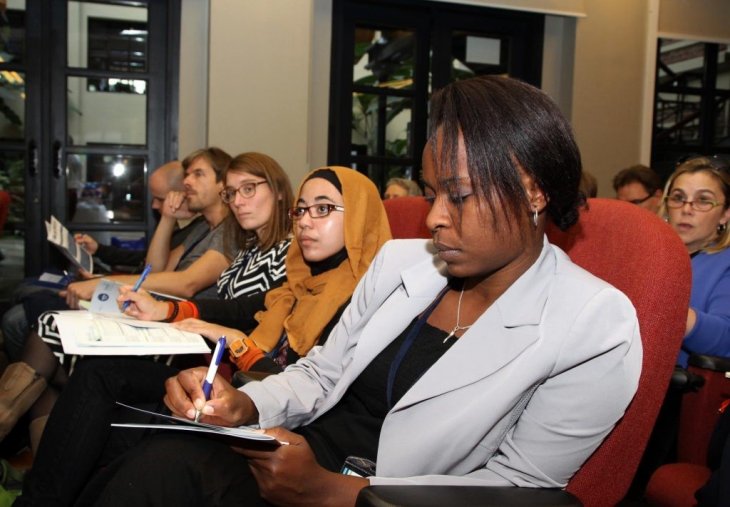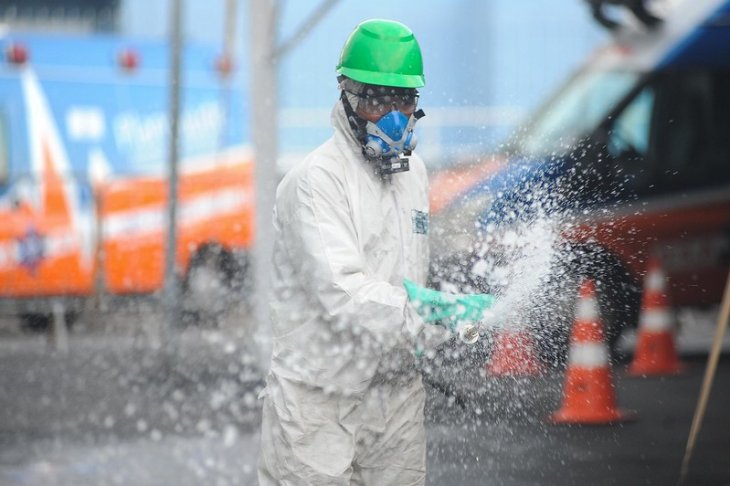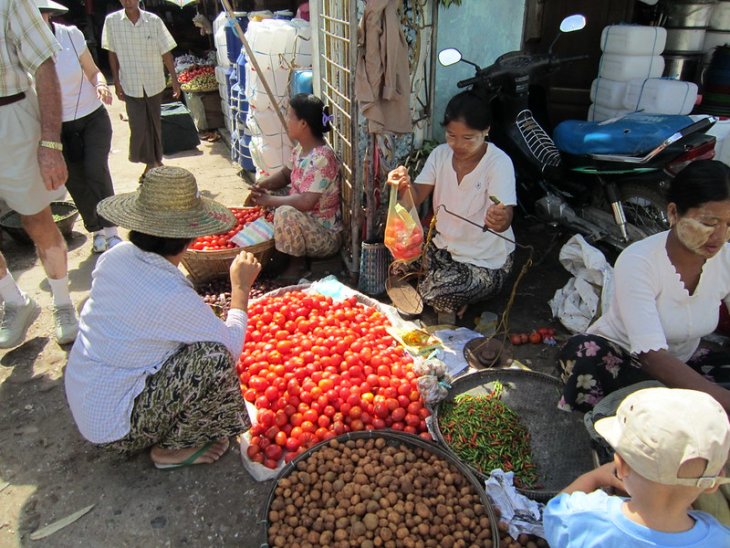Triggered by recent renewed attention to racism and worldwide protests urging change, the lid placed on racism in the humanitarian aid sector has been blown off. Last year’s international meeting of ALNAP concluded that inequality and discrimination in the humanitarian aid sector are a reality, and threatens its core foundation, namely the principle of humanity that views all people in equal terms. Recent weeks have seen many excellent blogs about racism in the sector and how resorting to arguments centring on capacities often obscure racist practices.
Yet racism in humanitarian studies is rarely mentioned. As scholars, we are ready to lay bare the fault lines in the humanitarian sector, but what about our own practices? It is time to address racism and decolonize humanitarian studies, too!
Turning our gaze inward
Anthony Giddens spoke of the double hermeneutic between social science and society, which co-shape each other’s understanding of the world and adopt each other’s vocabulary. In the relatively small and applied community of humanitarian studies, the double hermeneutic between academia and the field is more than discursive. Humanitarian studies can be seen to mimic many of the characteristics of its subject of research. Problems with humanitarian action are thus likely reproduced in the scholarly community that focuses on humanitarianism.
Racism-related problems with humanitarian studies can be grouped in two clusters:
First, the organization of humanitarian studies leads to a field dominated by scholars from the Global North. While scholars critically follow attempts of the sector to localize aid in an attempt to reduce racism through increasing ownership of aid processes, humanitarian studies itself may be criticized for being centred in the Global North. Adjacent domains of disaster studies and refugee studies[i] have faced similar critiques.
Research and educational institutes are mainly found in the global North, and rarely in the Global South where most humanitarian crises occur. The picture is less skewed with regards to disasters related to natural hazards, where we find many leading institutes in the Global South. However, faculties and courses dealing with humanitarianism in the Global South are scarce (see the global directory of the International Humanitarian Studies Associations for exceptions). Reasons include the dire lack of attention to higher education in donor programmes focusing on conflict-affected countries, making it almost impossible to find funding for such programmes[ii]. In 2016, at the World Humanitarian Summit, participants drafted a set of ethical commitments called for, among other things, more space for scholars and communities from crisis-affected countries (IHSA, 2016). Three years later, signatories admitted to a lack of progress which they largely attributed to structural disincentives for collaboration in their universities.
Moreover, relations between northern and southern institutions rarely attain the nature of equal partnership[iii]. The best many southern universities can usually hope for is to become a poorly paid partner that has no say in the agenda of the research and whose role is limited to data gathering. The possibility of co-authoring may not even be mentioned. I have followed closely how a gender and development institute in DRC, built around four women PhD holders, could easily find work as a sub-contractor for research, but once they developed their own agenda and proposals, donors were not interested and preferred to rely on Northern NGOs or UN agencies.
The picture becomes even direr when we take into account ethics dumping, when risks are offloaded on local researchers. Many universities in the north have adopted restrictive measures and don’t allow researchers to work in ‘red zones’. These researchers then rely on remote research and use local researchers to collect the data. One scholar told me at a conference how frustrated he was that his university did not allow him to enter a conflict area. He took residence at the border where he could regularly meet his research assistants, who gathered his data at their own risk. His frustration concerned his own impossibility to engage with the research, not the fate of these assistants! He had not considered involving the researchers in the analysis or inviting them as co-authors.
Second, methodologies and the ethics of relating to the research participants whose lives we study are problematic. Humanitarian studies is seen to be extractive, blighted by 1) a culture of direct data gathering through fieldwork and interviews at the expense of secondary data, leading to overly bothering crisis-affected communities with research; 2) a lack of feedback opportunities to communities, who see researchers come and go to obtain data and rarely, if ever, hear from them again; and 3) the assumption that participatory methods are not possible in conflict-affected areas because it is feared that social tensions will be reproduced in the research process. It is also assumed that people facing precarity and risks may have no interest in deep participation in research.
Deep participation does not mean quick and dirty participation in data gathering, such as participation in focus-group discussions where researchers can quickly move in and out of the lives of communities. Meaningful interactive research involves partners and participants as much as possible in every stage of the research[iv]. There have, however, been positive examples of participatory research in crisis-affected areas[v], and it is time that we build on these experiences and advance this work.
Thus, racism and decolonization debates have implications for methodology. Pailey critically noted that ‘the problem with the 21st-century “scholarly decolonial turn” is that it remains largely detached from the day-to-day dilemmas of people in formerly colonised spaces and places’. Similarly, Tilley[vi] argued that decolonization means ‘doing research differently’ – equally and collaboratively.
Of course, there are also reasons for caution with participatory methods that may be more pronounced in humanitarian crises. First, social realities are, in many ways, influenced by (governance) processes happening elsewhere, beyond immediate observation. Second, participatory methods may be prone to identifying outcomes that reflect the biases of the research facilitators (facipulator effects) and/or political elites participating in the process. Third, participatory processes risk feeding into existing tensions and creating harm. Research in crisis-affected areas may entail more risks and tends to be more politicized compared with other research.
It is therefore important to build on positive experiences while maintaining a critical dialogue on the possibilities of participatory research in humanitarian studies. As scholars, we need to work hard to break down the disincentives, to work towards equal partnerships, and to develop more participatory methodologies that treat conflict-affected communities as competent and reflexive agents that can participate in all aspects of the research process.
The environments of humanitarian studies are highly politicized and complex, and there are no quick fixes for our collaborations and methodologies. Thus, while stepping up our efforts, we also need to rely on the core of the academe: continuous debate and critically reflection on how we can enhance partnership for ethical research in humanitarian studies.
Inspired? Join the IHSA/NCSH webinar on Thursday 20 August, 11-12 CET.
